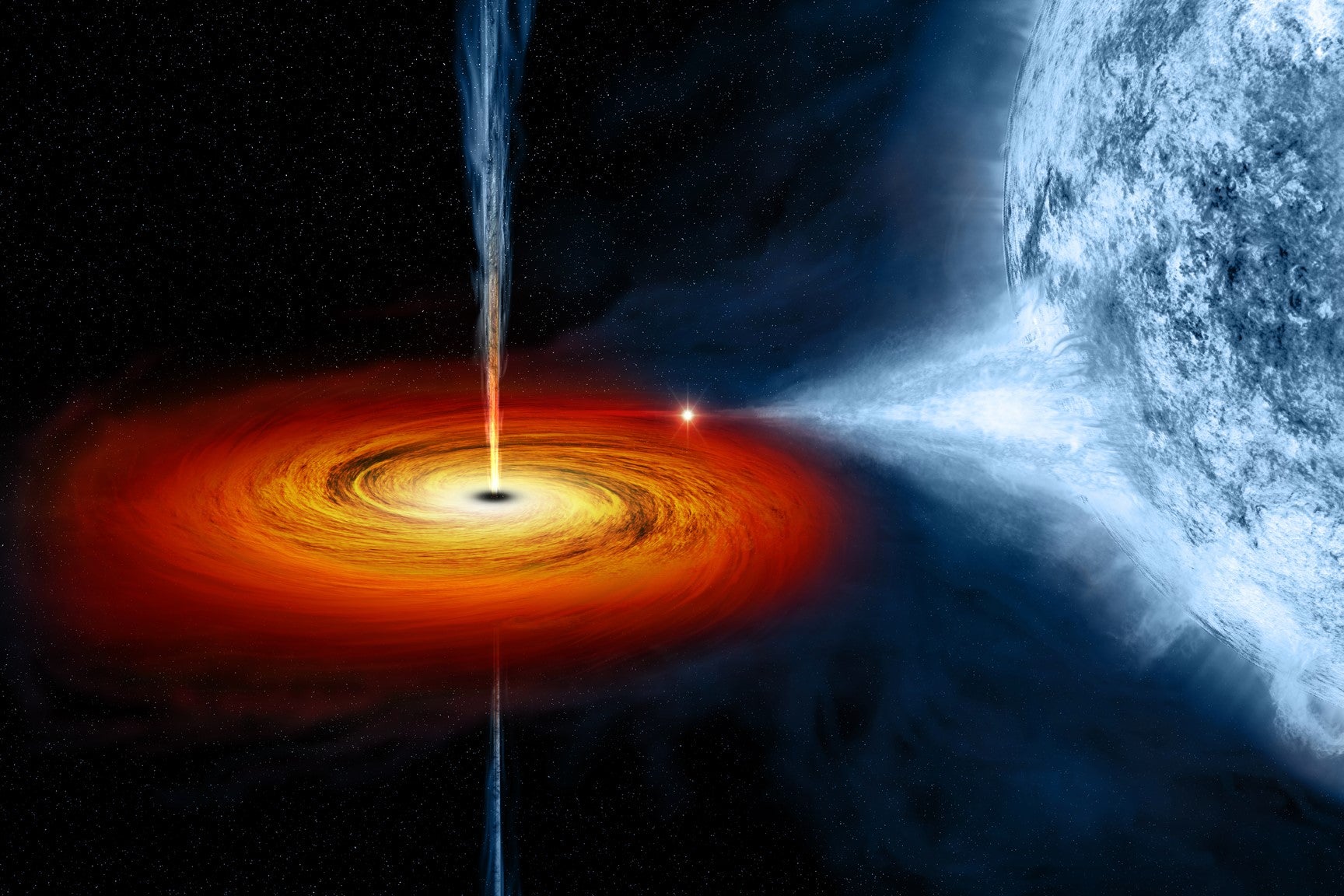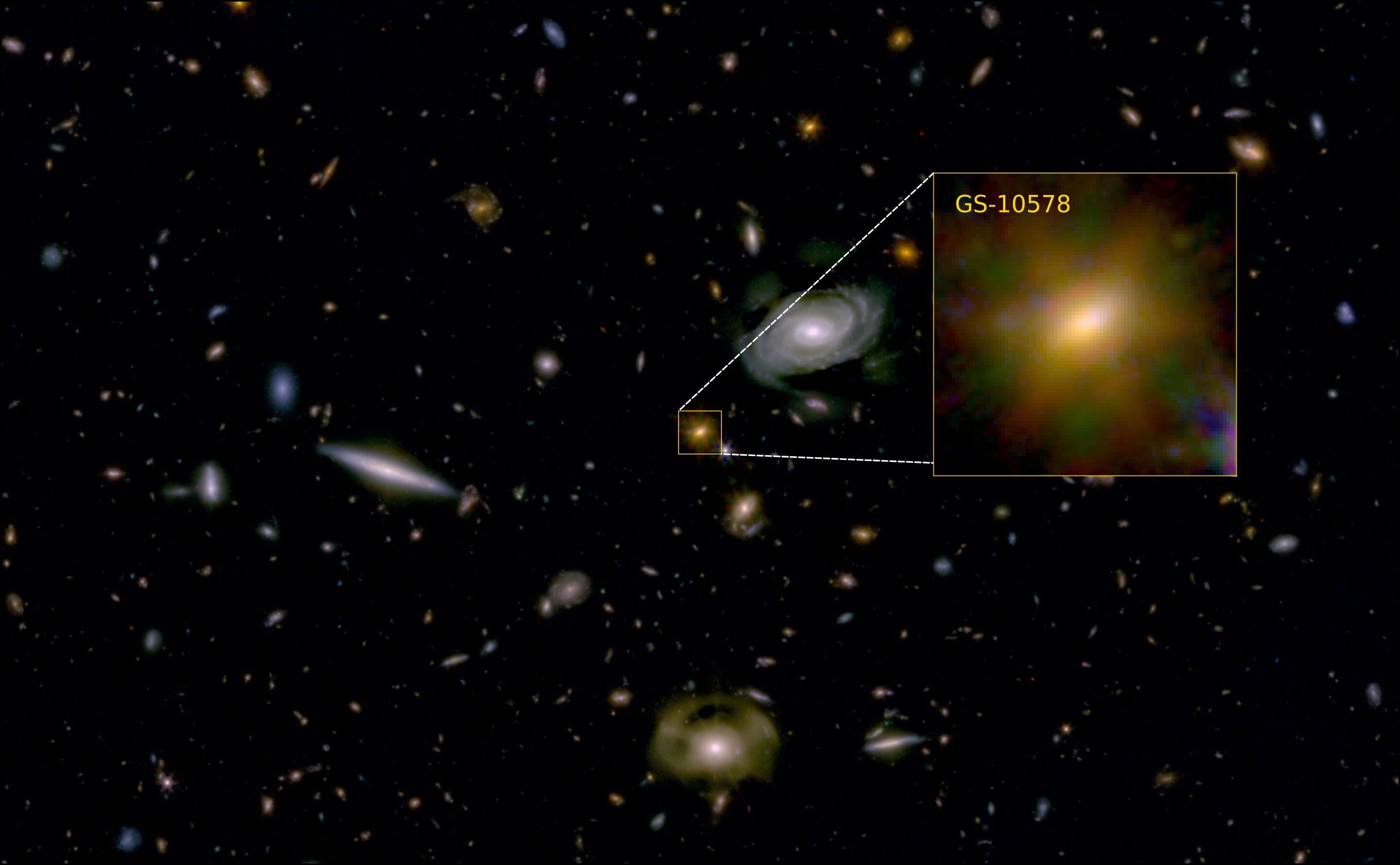The Independent's journalism is supported by our readers. When you purchase through links on our site, we may earn commission.
Black hole ‘starving’ its host galaxy to death, astronomers reveal
Supermassive black hole is ‘killing’ Pablo’s Galaxy, which is the same size as the Milky Way

Your support helps us to tell the story
From reproductive rights to climate change to Big Tech, The Independent is on the ground when the story is developing. Whether it's investigating the financials of Elon Musk's pro-Trump PAC or producing our latest documentary, 'The A Word', which shines a light on the American women fighting for reproductive rights, we know how important it is to parse out the facts from the messaging.
At such a critical moment in US history, we need reporters on the ground. Your donation allows us to keep sending journalists to speak to both sides of the story.
The Independent is trusted by Americans across the entire political spectrum. And unlike many other quality news outlets, we choose not to lock Americans out of our reporting and analysis with paywalls. We believe quality journalism should be available to everyone, paid for by those who can afford it.
Your support makes all the difference.Astronomers have observed a supermassive black hole “starving” its host galaxy to death, offering new insight into the early universe.
An international team led by the University of Cambridge used the James Webb Space Telescope to confirm that a galaxy roughly the size of our own is no longer able to form new stars due to the black hole sucking in the required fuel.
The GS-10578 galaxy, known as Pablo’s Galaxy, formed about two billion years after the Big Bang but is essentially dead due to its inability to form new stars. The astronomers observed the black hole pushing out huge amounts of gas from the galaxy at a greater rate than what it needs to form new stars
“We found the culprit: The black hole is killing this galaxy and keeping it dormant, by cutting off the source of ‘food’ the galaxy needs to form new stars,” said Dr Francesco D’Eugenio from Cambridge’s Kavli Institute for Cosmology.
“Based on earlier observations, we knew this galaxy was in a quenched state: it’s not forming many stars given its size, and we expect there is a link between the black hole and the end of star formation. However, until Webb, we haven’t been able to study this galaxy in enough detail to confirm that link, and we haven’t known whether this quenched state is temporary or permanent.”

The discovery comes just a month after scientists used the James Webb Space Telescope to solve one of cosmology’s biggest mysteries: why galaxies from the early universe appear impossibly large.
Researchers from the University of Texas at Austin observed through the Webb telescope, which began operations in July 2022, that black holidays were making them appear much bigger and brighter than they are.
The latest black hole discovery further pushes forward our understanding of the universe on a fundamental level, the researchers noted.
“We knew that black holes have a massive impact on galaxies, and perhaps it’s common that they stop star formation, but until Webb, we weren’t able to directly confirm this,” said Professor Roberto Maiolino from the Kavli Institute for Cosmology.
“It’s yet another way that Webb is such a giant leap forward in terms of our ability to study the early universe and how it evolved.”
The astronomers’ observations were detailed in the journal Nature Astronomy on Monday, in a study titled ‘A fast-rotator post-starburst galaxy quenched by supermassive black-hole feedback at z=3’.
Join our commenting forum
Join thought-provoking conversations, follow other Independent readers and see their replies
Comments